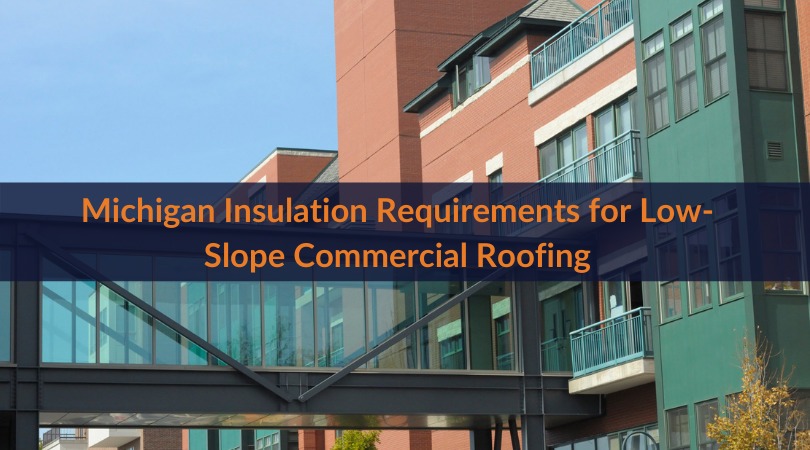Here is what you need to know
There is no doubt that in Michigan we receive a tremendous amount of snow, ice, and cold weather in the winter. Did you know that there is a minimum requirement for insulation on commercial buildings? I am here to tell you exactly what those specs are and why they are important.
“The applicable building energy code that determines the minimum insulation requirements for commercial roofs with insulation entirely above the deck in Michigan is the Commercial Michigan Energy Code (based on ASHRAE 90.1.-2013 with state-specific amendments). This code is effective September 20, 2017. The minimum insulation requirements apply both to new construction and roof replacements on existing buildings.” According to the PIMA State Energy Code
 Before you can apply these codes to your business, we must know and understand the R-value. The R-value is a measurement of a material’s ability to resist heat flow. The higher the R-value, the greater the insulating power. Installers should consult data sheets provided by Polyiso Manufacturers for information on product-specific R-values.
Before you can apply these codes to your business, we must know and understand the R-value. The R-value is a measurement of a material’s ability to resist heat flow. The higher the R-value, the greater the insulating power. Installers should consult data sheets provided by Polyiso Manufacturers for information on product-specific R-values.
It is also important to know that the International Energy Conservation Code recognizes ASHRAE 90.1 as an alternate compliance option for both new construction and existing buildings. This is the code compliance for roofing contractors around the country. Specifically in Michigan, code compliance is important for the correct insulation of commercial roofing.
The map to the right shows the different sections of Michigan and the applicable Minimum R-value Requirements for Insulation Entirely Above the Roof Deck
See Larger Images Here
The minimum requirement for insulation installed entirely above the roof deck is R-30 for climate zones 5 and 6, and R-35 for climate zone 7. Here are the recommended insulation methods for the following climate zones.
It is important to know and implement this code. The proper insulation prevents roof collapses, heat loss, and preserves energy. Failure to comply with this code can cause serious property damage, lawsuits, injury, and loss of heat and energy. You can find your state and local codes here; As always, refer to the code, and if you are unsure, contact the Energy Code department in your state.







